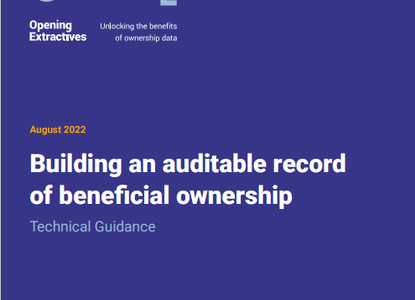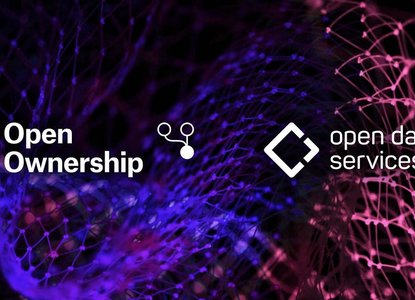Plans for version 0.4 of the Beneficial Ownership Data Standard

Photo: Alina Grubnyak, Unsplash
Improving the capturing of how beneficial ownership records change over time, making it easier to represent and identify declarations, and simplifying the data model are among the features to be added to the world’s leading open standard for beneficial ownership data.
The Beneficial Ownership Data Standard (BODS) provides guidance and a structured template for collecting, sharing and using high-quality, machine-readable data on beneficial ownership.
The data standard is developed by Open Ownership in partnership with Open Data Services, and recently became the approved UK government standard for the collection, use, and exchange of beneficial ownership information.
Following the launch of version 0.3 in June 2022 which allowed for the capturing of information on the beneficial ownership of state-owned enterprises and publicly listed companies for the first time, here are the future features we are working on:
Change over time
To be able to best capture an accurate representation of changes to declared beneficial ownership over time, we will be setting out a series of changes we plan on making to BODS.
Our recent briefing on building auditable records of beneficial ownership described how keeping records of historical information helps uncover links, and how such records are critical for law enforcement agencies to verify ownership chains, apply sanctions for non-compliance, and share data that is interoperable with other agencies.
Read more about this proposed feature on Github.
Representing declarations
Beneficial ownership declarations are often made within a bundle of information collected and submitted as part of a company’s annual reporting requirements. BODS uses a statement model to separate such declarations into statements on people, entities, and ownership-or-control relationships which can then be used to represent beneficial ownership chains. But it can then be challenging to link all those statements back to the original declaration, so we plan to make it easier to represent and identify declarations within a dataset.
Read more about this proposed feature on Github
Separating core data and metadata within statements
Beneficial ownership data contains a core set of information that tells us for example about the entity/person/ownership-or-control interest: names, identifiers, share percentages, etc. But as this information changes over time, there is necessarily a separate set of information about the statement itself (metadata), including when the information was submitted, who submitted it and how the statement connects to previous statements.
To make sure that the BODS data model is conveyed as simply and intuitively as possible, we plan to better distinguish core data fields from metadata fields.
Read more about this proposed feature on Github
Some changes are being made in version 0.4 of BODS following the Financial Action Task Force’s updated recommendations setting out the need for “more robust transparency requirements for nominee arrangements”.
Documentation: representing nominees and use of dates
Beneficial owners can set up arrangements where another person is nominated to hold responsibility for corporate responsibilities or roles. In some cases, this ability has been used to obscure the full beneficial ownership disclosures of particular beneficial owners by shifting holdings to family members, business associates or unrelated individuals employed as “formal nominees”.
Following the Financial Action Task Force’s updated recommendations setting out the need for “more robust transparency requirements for nominee arrangements”, we will add new documentation on how to capture nominees and beneficial ownership via nominees in BODS. We will also consider introducing new nominee and nominator interest types to support the capturing of this information.
To further support the features relating to capturing change over time in beneficial ownership declarations laid out above, we will create documentation to explain all the date fields which are used across BODS.
Keep up-to-date with this work
Progress towards the development of all these features can be monitored on our new release tracker.
Open Ownership and Open Data Services welcome feedback, guidance and advice on all these proposals. Comments can be left on relevant Github issues or emailed to [email protected].
A group of data experts, beneficial ownership specialists and other interested parties also provide advice and help guide the development of the standard. Anyone can apply to join the group by filling out this form. Virtual group meetings are held quarterly and communication is coordinated through a Google group.

